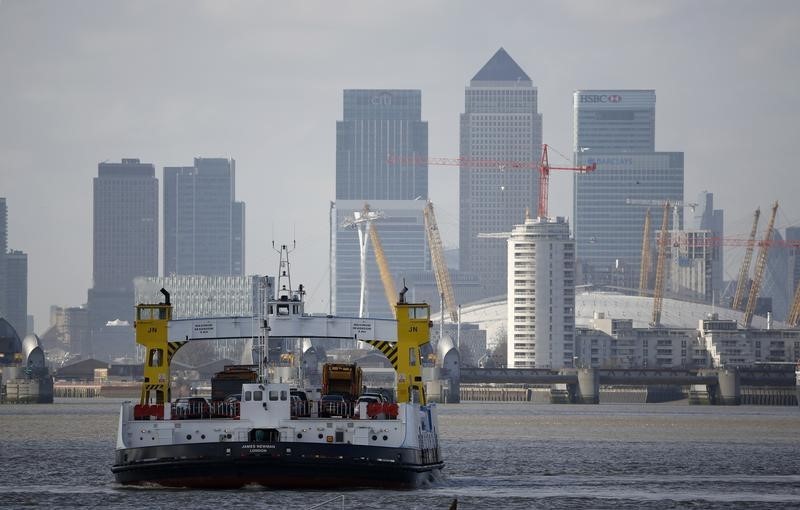LONDON (Reuters) - Large British companies are more worried about the economic outlook than they have been for the past 2-1/2 years, because of the slowdown in emerging markets and the prospect of UK and U.S. interest rate rises, a survey shows.
The quarterly survey of chief financial officers at major British companies offers an insight into their willingness to invest.
Published on Monday and conducted by accountants Deloitte between Sept. 9 and Sept. 28, it shows 73 percent of CFOs think uncertainty is either 'above normal', 'high' or 'very high', up from 55 percent in June.
Risk aversion also increased, with 47 percent of CFOs now saying it was a good time to take risk, down from 59 percent in June, while 60 percent said China's slowdown would hurt them over the next year.
"Softening demand in emerging economies, greater financial market volatility and higher levels of risk aversion make for a more challenging backdrop for the UK's largest businesses," David Sproul, Deloitte's chief executive, said.
Higher interest rates were ranked as the biggest threat to businesses, the survey showed, as the U.S Federal Reserve and Bank of England both deliberate over whether to raise interest rates for the first time since 2006 and 2007 respectively.
Weakness in emerging markets and the euro zone economy were ranked as the next biggest risks.
Britain's referendum on EU membership, which the government will hold before the end of 2017, slipped to fifth from joint third in the ranking.
Although the survey called uncertainty the greatest constraint on investment, it said fears should not be overblown.
"The outlook for emerging market economies has softened, but the U.S. is seeing a decent recovery, the euro area is growing again and the pace of activity seems likely to quicken into 2016," Sproul said.

Deloitte's chief economist Ian Stewart said CFOs were positive about prospects for the British economy, citing low inflation, rising pay and cheap credit.